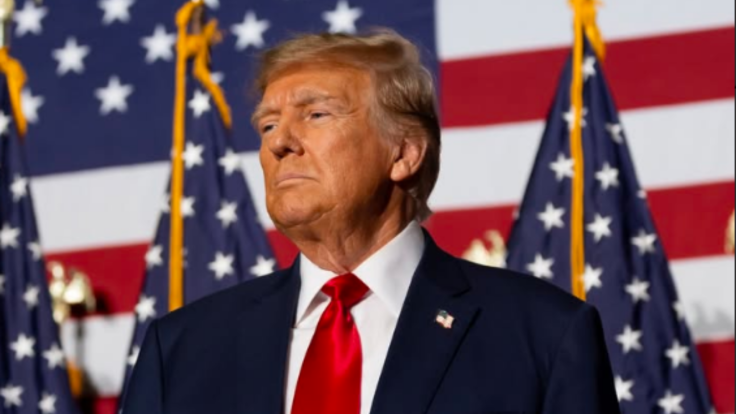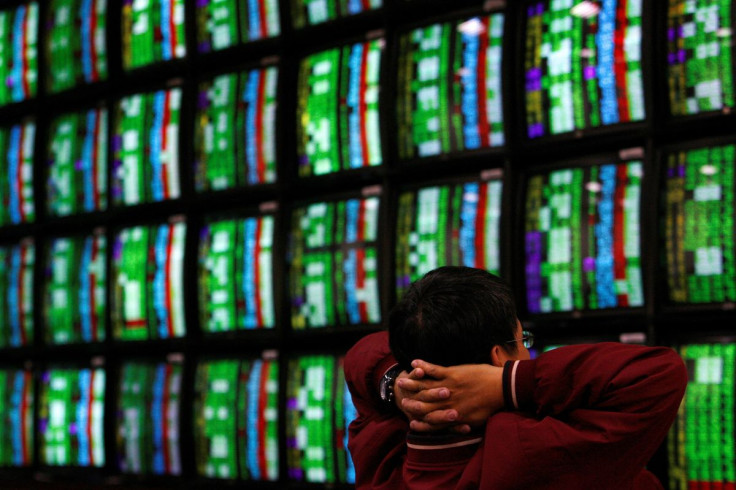Trump's Rare Earth Tariff Threats Shake Stock Markets—Is Your Portfolio Ready for a China Shock?
Trump's rare earth tariff warning rattles global markets—investors brace for supply chain shocks and portfolio volatility

Trump China tariffs sent shockwaves through global markets on Friday as President Donald Trump threatened a 'massive increase' on Chinese imports following Beijing's tightening grip on rare earth mineral exports.
The announcement triggered an immediate stock market sell-off, with the Dow Jones tumbling 385 points and raising fresh fears about a renewed US-China trade war.
The escalation centres on critical materials used in semiconductors, electric vehicles, and defence technologies, as Washington and Beijing clash over supply chains that underpin the global economy.
Rare Earths at the Heart of the Dispute
The escalation follows China's decision to impose new restrictions on the export of rare earth elements, a move widely interpreted as a strategic countermeasure in the broader trade conflict. These minerals, such as neodymium, dysprosium, and terbium, are essential for manufacturing everything from smartphones to missile guidance systems.
In a post on Truth Social, Trump accused China of issuing a 'hostile order' and warned that the United States would respond with financial countermeasures. 'For every Element that they have been able to monopolise, we have two,' he wrote, adding that he saw 'no reason' to meet with Chinese President Xi Jinping at the upcoming summit in South Korea.
Market Reaction: A Swift Sell-Off

The financial fallout was immediate. The Dow Jones Industrial Average fell by 385 points (0.8%). At the same time, the S&P 500 dropped 1.25% and the Nasdaq slid 1.75% amid investor anxiety over supply chain disruptions and rising trade tensions, as reported by ABC News.
Shares of companies involved in rare earth production surged, with USA Rare Earth reportedly climbing 17.8% and MP Materials gaining 16.2%, reflecting investor anticipation of increased domestic demand.
Meanwhile, tech and manufacturing stocks bore the brunt of the sell-off, as firms reliant on Chinese-sourced materials faced renewed uncertainty. Analysts warned that prolonged restrictions could lead to higher production costs and delays in key sectors.
Strategic Implications for the West
China currently controls around 70% of global rare earth production and an even greater share of processing capacity. Its decision to limit exports is seen as a direct challenge to Western efforts to diversify supply chains and reduce dependence on Chinese materials.
Trump's threat to impose sweeping tariffs is part of a broader strategy to counter what he described as 'trade hostility.' In his post on Truth Social, he also stated that China has been 'sending letters to Countries throughout the World, that they want to impose Export Controls on every element of production having to do with Rare Earths, and virtually anything else they can think of, even if it's not manufactured in China.'
The move has reignited calls in Washington and Brussels for increased investment in domestic mining and refining capabilities. However, experts caution that building a self-sufficient rare earth supply chain could take years and require significant environmental and regulatory concessions.
Portfolio Protection: What Investors Should Consider

For investors, the latest developments underscore the importance of geopolitical risk management. Exposure to sectors heavily reliant on Chinese imports, such as consumer electronics, automotive, and aerospace, may warrant reassessment.
Financial advisers recommend diversifying portfolios to include companies with robust domestic supply chains or those positioned to benefit from increased demand for alternative sources. Firms involved in rare earth mining outside China, as well as those developing recycling technologies, could see long-term gains.
Additionally, investors may consider hedging strategies or shifting allocations toward defensive sectors such as healthcare and utilities, which are less sensitive to trade disruptions.
While Trump's tariff threats have rattled markets, the long-term impact will depend on China's next move and whether diplomatic channels can de-escalate the situation. With the planned summit between Trump and Xi now in doubt, the prospect of a prolonged standoff looms large.
In the meantime, investors and policymakers alike must grapple with the reality that rare earths—once obscure commodities—have become central to the global balance of power.
© Copyright IBTimes 2025. All rights reserved.





















